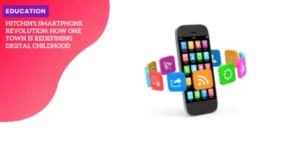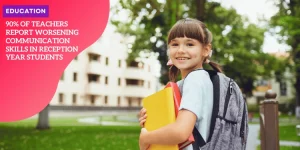Digital Learning Doesn’t Mean Social Isolation: 10 Ways Online Schools Build Student Communities
Introduction: Addressing the Socialisation Myth
The Common Misconception That Online Learning Leads to Social Isolation
When it comes to online learning, one of the most pervasive myths out there is that it leads to social isolation.
Many parents worry that, without the physical presence of classmates, their children will miss out on crucial social interactions and experiences.
This fear stems from the traditional view of school as a place where children not only gain academic knowledge but also develop social skills through face-to-face interactions.
The assumption is that without these in-person interactions, children will be left to their own devices, leading to social withdrawal and a lack of community.
Why Parents Worry About Their Children’s Social Development in Digital Learning Environments
Parents’ concerns about social development in online learning environments are understandable.
Social skills such as cooperation, empathy, and effective communication are vital for personal and professional success.
Traditionally, schools have been the primary environment for honing these skills.
The worry is that, in a digital setting, these opportunities will be diminished or lost altogether.
Furthermore, the notion that screen time is inherently harmful to children’s social and emotional health adds to these anxieties.
How the Landscape of Education is Evolving with Technology
However, the landscape of education is rapidly evolving, thanks in part to advances in technology.
Digital natives – those who have grown up with technology as an integral part of their lives – are particularly adept at forming meaningful connections online.
These connections are often just as significant as those made in person.
Online schools are leveraging technology not just to deliver content but to create vibrant, interactive learning environments where students can engage with each other in dynamic ways.
Through tools like virtual classrooms, social media platforms, and interactive forums, online schools are mimicking and, in some cases, enhancing the social dynamics of traditional schools.
While the misconception of online learning leading to isolation persists, the reality is quite different.
As we delve deeper into how online schools operate, it becomes clear that they offer unique opportunities for social engagement, skill development, and community building that can rival or even surpass traditional educational environments.

The Reality of Social Development in Online Schools
Research Evidence Challenging the Isolation Myth
The notion that online learning isolates students from social interactions lacks empirical support.
Multiple studies have debunked the ‘isolation myth,’ showing that students in digital learning environments can develop meaningful social connections.
Online schools utilise interactive platforms and social media, creating vibrant communities where students engage dynamically.
How Digital Natives Thrive in Connected Environments
Digital natives, who have grown up using technology, effortlessly navigate online platforms to build social networks.
Their comfort with digital communication allows them to form friendships and collaborative relationships that go beyond the classroom.
The familiarity with these tools equips them to leverage virtual spaces for meaningful social interaction.
The Difference Between Physical Proximity and Meaningful Social Connections
Physical proximity does not necessarily equate to meaningful social connections.
“Online learning platforms replace conventional in-person interactions with meaningful virtual engagements.
Relationships forged through online interactions often centre around shared interests and values, which can be stronger than those based solely on physical proximity.
This shift highlights that quality, rather than the format, is key to effective social development.
Transitioning into the next discussion, it’s vital to recognise how interactive online platforms can indeed transform virtual classrooms into socially vibrant hubs.
Virtual Classrooms as Social Hubs
Facilitating Student Engagement Through Interactive Online Platforms
Virtual classrooms offer engaging environments where students can interact meaningfully.
Interactive tools, such as real-time chats, polls, and multimedia features, create immersive experiences.
These tools encourage active participation and make learning more dynamic, mirroring traditional classrooms’ vibrant dynamics.
Structured Digital Interaction for Shy or Socially Anxious Children
One of the significant advantages of online learning is its structured digital interaction, which benefits shy or socially anxious children.
Online platforms provide a controlled setting where these students can communicate at their own pace, reducing the pressure they might feel in face-to-face interactions.
This structure allows them to build confidence and engage more comfortably with their peers, fostering a more inclusive learning environment.
Fostering Collaboration Through Virtual Breakout Rooms and Group Projects
Online schools use virtual breakout rooms and group projects to enhance collaboration.
Breakout rooms enable students to collaborate in smaller groups, exchanging ideas and tackling problems in real-time.
These sessions promote teamwork and communication skills, essential for both academic and personal development.
Group projects further encourage students to collaborate, plan, and execute tasks collectively, mimicking real-world scenarios and preparing them for future collaborative environments.
Virtual classrooms, with their varied interactive options and supportive structures, are dynamic social hubs where students can thrive socially and academically, paving the way for enriched learning experiences.
Building Digital Communities Through Shared Interests
Creating Clubs and Special Interest Groups
Online schools have creatively tackled the socialisation myth by establishing clubs and special interest groups.
These digital communities cater to students’ varied hobbies and academic interests, providing them with platforms to engage beyond the confines of regular coursework.
Activities range from book clubs where students discuss literature, to coding groups where burgeoning programmers exchange tips and work on projects together.
This variety ensures that every student finds a niche where they can connect and thrive.
Connecting Across Geographical Boundaries
One of the most compelling advantages of online schools is the ability to connect students from different geographical backgrounds.
Unlike traditional schools, which are often limited to local interactions, online schools break these barriers, allowing students from different parts of the world to interact and collaborate.
This fosters a rich exchange of ideas and perspectives, broadening students’ horizons and worldviews.
For instance, a student passionate about environmental science can connect with peers from countries experiencing different ecological challenges, providing a holistic view of global environmental issues and solutions.
The Power of Shared Passions
Contrary to the notion that physical proximity is essential for forming strong social connections, online schools demonstrate the power of shared passions.
Engaging in activities they love, students bond over common interests much quicker and more intensely than they might in a traditional school setting.
This occurs because the focus is always on the shared passion or activity, fostering deep connections that are not limited by physical presence.
Online platforms also often allow students to join multiple groups, encouraging diverse interactions and promoting a more inclusive social experience.
Whether it’s sharing art projects, playing online chess, or debating on global politics, these connections often go beyond superficial acquaintances and evolve into meaningful friendships.
By leveraging technology to build vibrant communities around shared interests, online schools not only counter the isolation myth but also enhance social skills in a dynamic world.
These digital communities lay the groundwork for future chapters, which will explore intentional social skill development and hybrid learning opportunities.
Intentional Social Skill Development
Teaching Digital Citizenship and Communication Skills
Online schools are uniquely poised to teach digital citizenship and communication skills deliberately.
By embedding these skills into their curriculum, institutions ensure students understand etiquette, privacy, and the responsible use of digital tools.
These lessons are pivotal for navigating today’s interconnected world, promoting safe and productive online interactions.
Opportunities for Debate, Discussion, and Collaborative Problem-solving
Virtual classrooms provide structured opportunities for engaging debates, discussions, and collaborative problem-solving, enriching the learning experience.
Online platforms often have dedicated spaces for these activities where students can express their ideas clearly, engage in meaningful dialogues, and work together to solve complex problems.
Such activities foster critical thinking and enhance social competencies, preparing students for real-world scenarios.
Developing Critical 21st-century Social Competencies
Intentionality in teaching social skills sets online schools apart, highlighting their efforts in nurturing critical 21st-century competencies.
Digital communication, empathy, and online collaboration are skills increasingly coveted by employers.
Structured learning environments in online schools help students master these skills, ensuring they are well-prepared for future remote work and virtual engagements.
Students in these environments become adept at handling digital tools, understanding the nuances of online communication, and developing resilience and adaptability.
These competencies are essential in a future where digital interactions will likely dominate professional and personal landscapes.
This deliberate focus on social skill development in online schools not only refutes the notion of social isolation but highlights how these institutions can mould well-rounded, digitally proficient individuals.
As we delve into the next aspect, we explore how these skills transition into real-world applications and the hybrid approaches that blend digital learning with face-to-face interactions.
Blended Learning Opportunities
Blended learning marries the best of both digital and face-to-face education, creating a robust learning experience.
Many online schools have recognised the importance of occasional in-person meetups and field trips, integrating these activities into their predominantly virtual programmes.
This hybrid approach provides a balanced educational experience, allowing students to enjoy the convenience of online learning while still benefiting from direct social interactions.
Enhancing Learning with In-Person Interactions
Online schools frequently organise in-person meetups, such as field trips, workshops, and social events.
These interactions are more than just supplementary; they are designed to deepen the learning experience and foster stronger social connections.
Field trips offer real-world applications of theoretical knowledge, making learning tangible.
Moreover, meeting face-to-face allows students to build friendships and social skills that can sometimes be challenging in a purely online environment.
Complementary Benefits
The value of these face-to-face interactions lies in their ability to complement and enhance regular online learning.
Students can solidify relationships initiated in virtual classrooms, promoting a sense of community and belonging.
For instance, organising group projects during meetups can fortify teamwork skills and encourage collaborative learning, translating the benefits of physical interaction into their digital experiences.
Optimal Flexibility
Blended learning offers unmatched flexibility, catering to diverse learning styles and needs.
Students can benefit from the structured and personalised nature of online education while still engaging in the spontaneity and dynamism of in-person activities.
This approach ensures they are well-prepared for various future scenarios, whether in traditional or remote work environments.
Blended learning thus uniquely prepares students for a world where both digital and physical interactions are crucial, granting them the skills and experiences needed to thrive.
Parent and Family Involvement
The Increased Opportunity for Family Participation in Online Education
One significant benefit of online education is the increased opportunity for family involvement.
Online learning environments enable parents to monitor their children’s progress closely, attend virtual meetings with teachers, and actively participate in their academic journey.
This engagement fosters a supportive home environment that is conducive to learning.
Additionally, many online schools offer flexible schedules that allow parents to be more involved in day-to-day educational activities.
This flexibility enables working parents to balance their professional responsibilities while taking an active role in their child’s educational development.
How Parent Communities Form Around Online Schools
Online schools often create vibrant parent communities.
These communities are typically formed through digital platforms where parents can connect, share experiences, and collaborate on school-related activities.
For instance, parents may join online forums, participate in group chats, or engage in social media groups specifically tailored to their children’s schools.
Moreover, online schools often host virtual events such as webinars and workshops that provide valuable insights into effective parenting strategies and educational support.
These events help parents feel more connected and supported within the school community.
The Benefit of Stronger Home-School Connections for Student Development
Stronger home-school connections significantly benefit student development.
When parents are actively involved and well-informed about their children’s academic progress, they can better support their learning needs.
Such engagement leads to improved educational outcomes as it fosters a collaborative environment where both parents and educators work towards the child’s success.
Furthermore, parents can offer personalised support based on their child’s unique needs, which enhances the learning experience.
This tailored approach helps students feel more secure and confident, ultimately aiding their overall development.
These strengthened home-school connections also allow for better communication channels, ensuring that parents can swiftly address any issues or challenges their children may face.
The collaborative approach further facilitates a nurturing environment conducive to both academic success and personal growth.
Transitioning from parent involvement, the next aspect to consider is the role of global citizenship and cultural exchange in online education.
Global Citizenship and Cultural Exchange
Connecting Students Across Borders
Online schools provide a remarkable platform for students to connect with peers from various countries and cultures.
By participating in global classrooms, students gain exposure to diverse worldviews and traditions, enriching their educational experience exponentially.
These interactions foster a broader understanding and appreciation of cultural differences, which is crucial in our increasingly interconnected world.
Development of Cross-Cultural Communication Skills
One of the notable benefits of global connections in online education is the development of cross-cultural communication skills.
Students learn to communicate effectively and empathetically with individuals from different cultural backgrounds, which is a vital competency for future personal and professional environments.
Collaborating with international classmates on projects or discussions helps students navigate cultural nuances and build respectful and meaningful relationships.
Diverse Perspectives in Learning Environments
The advantage of a diverse learning environment facilitated by online schools cannot be overstated.
Engaging with peers from diverse geographical, cultural, and socio-economic backgrounds enriches classroom discussions and broadens students’ perspectives.
They are encouraged to think critically and consider multiple viewpoints, fostering enhanced problem-solving skills and empathy.
This type of learning environment helps students become responsible global citizens who are prepared to work in multicultural settings.
Online education creates a community beyond borders, fostering global citizenship and cultural exchange in ways traditional classrooms may struggle to achieve.
By participating in these dynamic international networks, students gain invaluable skills and insights, preparing them for the global stage.
The next topic delves into personalised social support systems, exploring how online schools cater to individual needs effectively.
Personalised Social Support Systems
Tailored Mentoring and Counselling Services
One of the distinguishing features of online schools is their ability to offer personalised mentoring and counselling services.
These tailored support systems cater to individual student needs more effectively than traditional settings.
Mentors can provide one-to-one guidance, ensuring that each student receives focused attention on their personal and academic challenges.
This level of customised mentoring is instrumental in helping students navigate their educational journey successfully.
One-to-One Support for Specific Social Needs
For students with specific social needs, online schools provide an environment that is both nurturing and supportive.
Unlike conventional classrooms, where a teacher’s time and attention are divided among many pupils, online platforms allow for dedicated one-to-one interactions.
This approach ensures that students struggling with social skills or experiencing social anxiety receive the specific support they need, tailored to their unique circumstances.
This bespoke assistance can empower students to build confidence and improve their social interactions.
Increased Access to Mental Health Resources
Digital platforms significantly increase access to mental health resources.
Online schools often collaborate with mental health professionals to offer counselling services directly through their platforms.
This accessibility means that students can easily reach out for help when they need it, overcoming the barriers of stigma or logistical hurdles that might exist in physical schools.
Organisations like Mind offer support lines and confidential advice, providing essential mental health resources that are just a click away for students.
Through these personalised support systems, online schools create an inclusive and supportive learning environment.
This framework enables students to thrive both academically and socially, preparing them to engage confidently within their digital communities and beyond.
Preparing for a Digital Future
Navigating Remote Work Environments
As our world becomes increasingly interconnected, the ability to thrive in digital workspaces is vital.
Online school communities are pioneering this preparation for students, mirroring future work settings.
Engaging in virtual classrooms acclimatizes learners to remote communication and collaboration tools.
This hands-on experience develops their skills in navigating remote work environments, which are now essential in many careers.
Developing Digital Collaboration Skills
Digital collaboration skills are no longer a novelty but a necessity. Employers value the ability to effectively collaborate in a virtual space.
Online schools offer platforms that enhance these skills through team projects and digital tools, reflecting workplace dynamics.
Students learn to work together across distances, appreciate diverse perspectives, and solve challenges collaboratively—skills that are indispensable in a global workforce.
Importance of Virtual Social Competence
While traditional social skills remain important, competence in virtual interactions is becoming equally crucial.
The ability to communicate effectively online, manage digital relationships, and understand virtual etiquette is vital.
Online schools nurture these skills, equipping students for a world where digital and physical interactions coexist.
Building on these competencies, students transition smoothly into environments where digital interactions are frequent, bridging the gap between education and the evolving demands of a globalised workforce.
Conclusion: Reframing the Conversation
Moving Beyond the ‘Online vs. Social’ Dichotomy
The notion that online learning inherently results in social isolation is a misconception that needs to be put to rest.
This outdated perspective fails to account for the flexible and dynamic environments created by digital learning platforms where students can form meaningful social connections.
Quality Over Quantity
Social interactions are more about quality than quantity or format.
Online schools offer structured opportunities for engagement, allowing students to interact thoughtfully and effectively.
Virtual communities can be just as vibrant and supportive as their physical counterparts.
Making Informed Choices
Parents need to consider the extensive research and evidence that highlight the potential benefits of online learning environments.
By focusing on the proven capabilities of online schools to foster social development, parents can make well-informed decisions for their children’s education.






